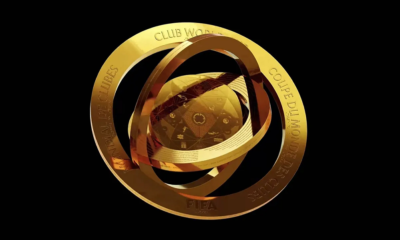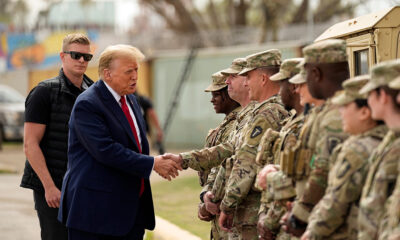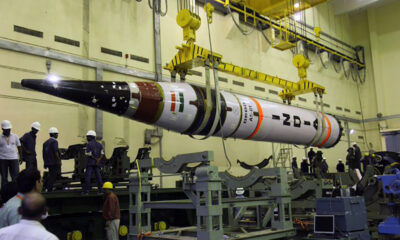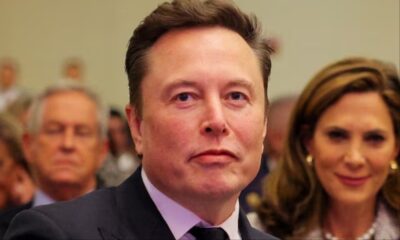Science & Technology
Apple unveils iPhone 15 Pro with titanium case, holds line on prices

Apple launched a new series of iPhones that included a new titanium shell, a faster chip and improved video game playing abilities, Reuters reported.
The biggest surprise with the iPhone 15 that will come out Sept. 22: It did not raise prices, reflecting the global smartphone slump.
The event at Apple's Cupertino, California, headquarters comes amid lingering economic uncertainty, especially in China, Apple's third-largest market where it faces challenges from expanded restrictions on using its iPhones in government offices and the first new flagship phone in several years from Huawei Technologies (HWT.UL).
Huawei raised its second-half shipment target for the new Mate 60 series smartphone, which has satellite capability, by 20%, the country's official Securities Times reported on Tuesday shortly before the Apple event.
Apple did not deliver any blockbuster surprises, and shares closed down 1.7% after event.
While Apple avoids the terms artificial intelligence, or AI, the technology was the driver of several new features.
An Apple executive said the company used machine learning to detect a person in the frame, allowing users to turn a picture into a portrait immediately or later in the Photos app.
Apple also showed off new watches, including a Series 9 Watch with a feature called "double tap" where users tap thumb and finger together twice, without touching the watch, in order to perform tasks like answering a phone call.
It uses machine learning to detect tiny changes in blood flow when the user taps their fingers together, freeing up the other hand for other tasks like walking a dog or holding a cup of coffee, said Apple Chief Operating Officer Jeff Williams.
Both the Pro and other iPhone 15 models will have a brighter display and a 48-megapixel camera as well as 100% recycled cobalt in their batteries, Reuters reported.
Apple said the iPhone 15's satellite connectivity can now be used to summon roadside assistance. It is rolling out the feature out with the American Automobile Association (AAA) in the United States.
Apple said that USB-C charging cables are coming to both its iPhone 15 and the charging case of its AirPods Pro devices. The move reflects requirements from European regulators to use USB-C and allows the use of the same charging cables already used for iPads and Macs.
"I was expecting Apple to try and spin the all USB-C decision in certain way but they didn't they were very matter of fact in the way they talked about it," said Carolina Milanesi, an analyst with Creative Strategies. She said the shift "brought some differentiation to the iPhone Pro, because there's faster throughput for data transfer. That is going to be valuable for people" who use the device for professional photography, Milanesi said.
Apple also said the iPhone 15 Pro can capture what it calls "spatial videos" by using two of the device's cameras to capture a three-dimensional video. Those videos will be viewable on Apple's Vision Pro headset that is due out early next year, marketing chief Greg Joswiak said.
The Pro's use of titanium makes it lighter and stronger than previous models of other metals, read the report.
Bob O'Donnell, head of TECHnalysis Research said the steady prices were a surprise.
"I think both Apple and the carriers recognize that with consumers feeling pressure on their budget and the lack of dramatic changes it’s getting harder to convince people to upgrade. Keeping prices stable should help with that," he said.
The iPhone 15 costs $799, the iPhone 15 Plus starts at $899 and the Pro series starts at $999. The Pro Max starts at $1,199, the same prices as last year for the same levels of storage. Last year, Apple offered a $1,099 iPhone Pro Max model with less memory.
Apple still relies on iPhone for more than half of its sales, but the global smartphone market has slumped from shipping 294.5 million total phones to 268 million in the second quarter. Apple's shipments declined the least of any major smartphone maker, dropping from 46.5 million phones to 45.3 million, according to data from Counterpoint Research.
The outdoor sports-focused Apple Watch Ultra 2 has new features for cycling and diving and what Apple said is the brightest screen it has ever made. The Series 9 will start at $399 and the Ultra 2 watch will start at $799 and be available Sept. 22.
Apple will no longer use leather in any of its products, said Lisa Jackson, the company's environmental chief. The company is replacing some of those products with a textile called "FineWoven" that it says feel like suede, Reuters reported.
Science & Technology
Russia fines Google more than the world’s total GDP over YouTube bans

Russia has fined Google $2.5 decillion after the US tech giant took action against pro-Kremlin TV channels on YouTube following Moscow’s invasion of Ukraine.
Russia imposed a daily fine four years ago - a fine that has since swelled to an unprecedented level - ($20,000,000,000,000,000,000,000,000,000,000,000 - a 33-digit figure).
To put this into perspective, global GDP reaches an estimated $110 thousand billion (12-digit figure), according to the IMF.
Speaking to Russia’s TASS news agency, one expert, Roman Yankovsky from the HSE Institute of Education, said Google “clearly will not pay this penalty, and the Russian Federation will not be able to recover this money from the company."
Euronews reported that a short calculation shows that he is right.
Google's holding company, Alphabet, has a market capitalisation of slightly more than $2 trillion. Even with earnings of $80.54 billion from the last quarter, the tech giant doesn’t seem to be able to afford to pay the fine.
Google first barred pro-Moscow channel Tsargrad TV, which is owned by oligarch Konstantin Malofeev, four years ago.
At the time, Google was fined a daily penalty of 100,000 roubles and warned that amount would double every 24 hours if it went unpaid.
The original fine has been compounded by further penalties after Google eventually blocked a total of 17 Russian TV channels as a result of international sanctions, The Telegraph reported.
The tech giant now owes a staggering $2.5 decillion.
Science & Technology
Apple launches new iPad mini with AI features
Apple said it would roll out the first set of AI features in the U.S. version of the English language this month through a software update with iPadOS 18.1.
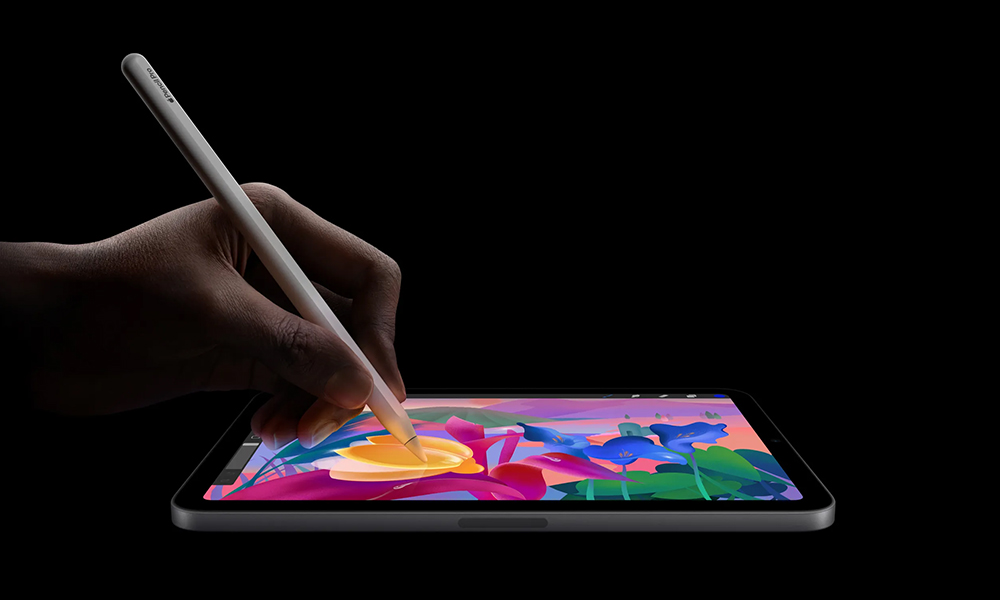
Apple on Tuesday launched its new generation of the iPad mini packed with AI features including writing tools and an improved Siri assistant, as the iPhone maker races to boost its devices with artificial-intelligence capabilities, Reuters reported.
The new iPad mini is powered by Apple's A17 Pro chip, which is used in the iPhone 15 Pro and Pro Max models. With a six-core central processing unit, the A17 Pro would boost CPU performance by 30% compared to the current generation iPad minis and is central to running Apple Intelligence, Apple's AI software.
Apple said it would roll out the first set of AI features in the U.S. version of the English language this month through a software update with iPadOS 18.1.
The features will be available for iPads with A17 Pro or M1 chips and later generations, Apple said, adding it will roll out additional features including image-generation tools, Genmoji and ChatGPT-powered capabilities over the next several months, read the report.
Apple in September unveiled its long-awaited, AI-boosted iPhone 16 lineup, but with the AI features still in test mode, the company failed to excite some investors while early sales data raised some questions around demand.
Still, research firm Canalys on Monday said the iPhone 16 would help Apple's sales in the fourth quarter and drive momentum into the first half of 2025, after Apple reached a record high third-quarter shipments.
The iPad mini, starting at $499, is available for pre-orders starting on Tuesday and will begin arriving to customers and Apple store locations next week, Apple said.
Science & Technology
Iran sends satellites to Russia for rocket launch
In September, Iran carried out its second satellite launch this year using a rocket built by its Revolutionary Guards
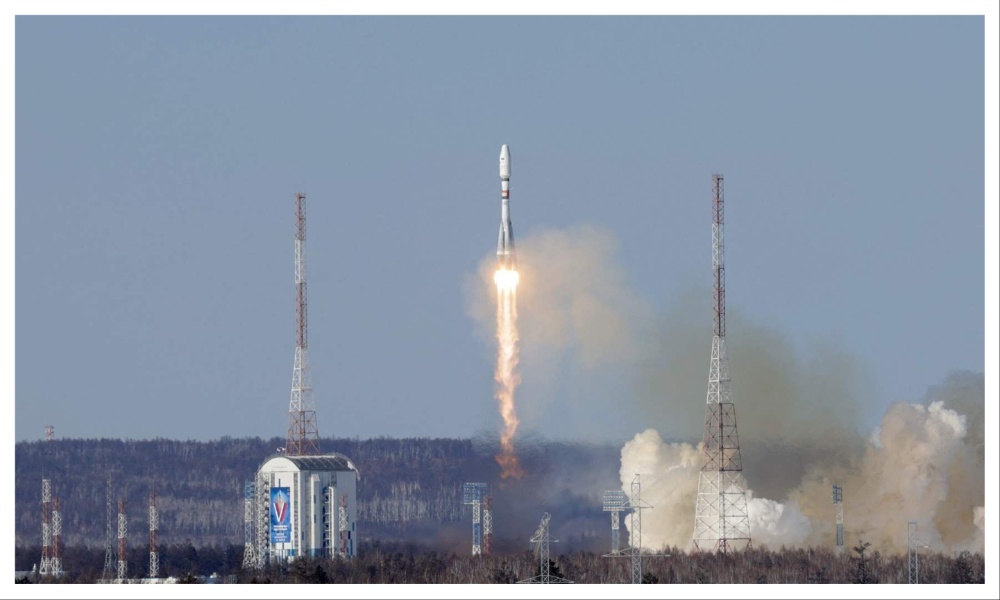
Iran has sent two locally made satellites to Russia to be put into orbit by a Russian space vehicle, the semi-official news agency Tasnim reported on Saturday, in the latest space cooperation between the two U.S.-sanctioned countries.
The development of Kowsar, a high-resolution imaging satellite, and Hodhod, a small communications satellite, is the first substantial effort by Iran's private space sector, the report said.
Russia sent Iranian satellites into orbit in February and in 2022, when U.S. officials voiced concern over space cooperation between Russia and Iran, fearing the satellite will not only help Russia in Ukraine but also help Iran monitor potential military targets in Israel and the wider Middle East, Reuters reported.
Kowsar could be used in agriculture, natural resource management, environmental monitoring, and disaster management, Tasnim said.
Hodhod is designed for satellite-based communications and could be used in remote areas with little access to terrestrial networks.
In September, Iran carried out its second satellite launch, this year using a rocket built by its Revolutionary Guards.
The launch came as the United States and European countries accuse Tehran of transferring ballistic missiles to Russia that could be used in its war with Ukraine. Iran has denied this.
-

 World4 days ago
World4 days agoBiden is sending aid to help Ukraine keep fighting next year, Blinken says
-

 Tahawol4 days ago
Tahawol4 days agoTahawol: NATO’s concern over proximity of Russia & North Korea discussed
-

 Latest News4 days ago
Latest News4 days agoIEA committed to freedom of media within Islamic principles: Mujahid
-

 Latest News4 days ago
Latest News4 days agoIEA prioritizing poverty reduction and job opportunities, says deputy PM
-

 4 days ago
4 days agoAWCC customer in Kandahar wins 1 million AFN in ‘lucky lottery’
-
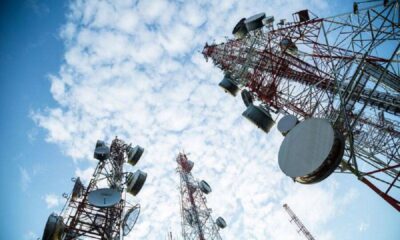
 Latest News4 days ago
Latest News4 days agoIEA cuts mobile phone and internet rates
-
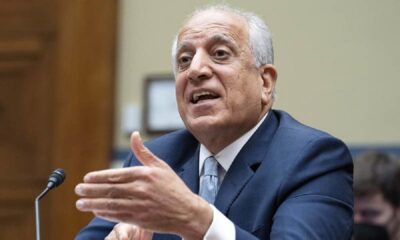
 Latest News4 days ago
Latest News4 days agoKhalilzad: Turning our back on Afghanistan would not be wise
-
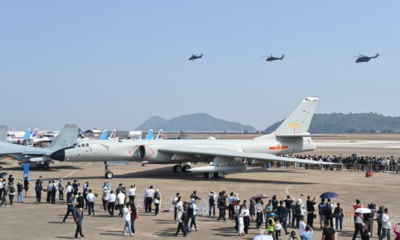
 World5 days ago
World5 days agoChina’s largest air show off to flying start with fighter jets and attack drones


